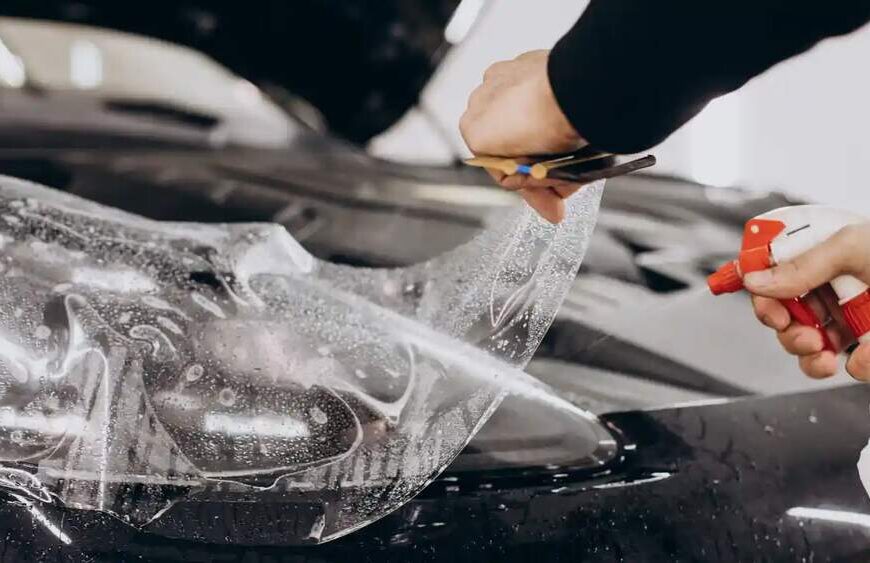Car Shakes When Braking
If you notice that your car shakes when braking, you may need to have your brakes checked out. This may be a sign of severe wear. If this is the case, you should take your car to Tires Plus. The team of technicians will determine the underlying cause and explain what you can do to fix the problem. There are several potential causes of a shaken car, so read on to learn more about what you should do if your car starts shaking while braking.
Warped brake rotors
If your car shakes when you hit the brakes, you may have warped brake rotors. If you can’t figure out what’s causing the shake, take your car to a mechanic for a diagnosis. Warped rotors can be caused by uneven wear or by rust, which can get lodged in the rotor. A mechanic can diagnose the problem quickly and determine what needs to be done.
This problem can be very dangerous. The warped rotor will cause your car to shake more severely when braking and will make it harder to stop. This will result in brake fade and complete loss of stopping power. Warped rotors can also cause steering wheel shaking and low tire pressure. Warped brake rotors are often too thin to be machined flat. A technician can make your rotors flat again.
During a routine checkup, the mechanic can determine if your rotors are warped. They can spin the rotors by hand to make sure they’re free from bumps or resistance. If they’re not, they should be replaced. Once the rotors are replaced, you’ll be able to stop car shaking by using the brakes more effectively.
Warped brake rotors can affect the stopping power of your INFINITI. If you feel that your car shakes when braking, you should make an appointment with an INFINITI service center right away. Warped rotors reduce your vehicle’s stopping power and make stopping more difficult. An experienced technician can inspect the rotors for warping and replace them if necessary. Once the rotors have been repaired, your car should stop shaking and the driver will feel better.
Warped brake rotors are one of the most common causes of car shaking while braking. The rotors wear out after 70,000 miles and become thin and damaged. The excessive heat generated by warped rotors causes the car to shake when braking. Once you notice these symptoms, it’s time to have your rotors checked. If you notice that your car is shaking when braking, your car’s rotors are likely to be warped.
Out-of-round drums
Out-of-round brake drums can result in vibrations and pedal pulsation when braking. A qualified brake technician can inspect the brake drums and replace them if necessary. In addition, a mechanic can measure the drums to ensure they are round and sized correctly. Out-of-round drums can also cause vibrations and squealing, which is an indication of a worn rotor.
If the car shakes when braking, it may be due to out-of-round brake drums. This can result from several different problems, such as warped rotors and unbalanced tires. Warped brake rotors cause shaking because the brake pads press against them. This friction produces heat, which causes the metal to become pliable. Warped brake drums can cause a shaking sensation when braking, so it’s important to inspect these components.
Out-of-round brake drums can also cause vibrations in steering wheels. These vibrations are often caused by the calipers on the front brakes of older vehicles. The calipers are often to blame for shaking, which could result in a car that doesn’t stop. It’s also important to have a new set of brake shoes in case your car’s rotors have warped.
Another possible cause of shaking while braking is worn brake pads. Replace brake pads when they have about a fourth of their life remaining. Brake pad wear indicator lights can indicate the need to replace the pads. The indicator can be a high-pitched squeal or light vibration. The wear indicator can be located on a metal tab on the brake pad. This is a simple fix that will prevent the shaking of the car while braking.
Another cause of car shaking is a damaged or out-of-round axle. When this happens, the axle can become bent. Even minor collisions and bumping into curbs can damage this component. This will cause the car to shake and skid when braking. In addition, the brake caliper can be stuck to the wheel, pushing the pads against the rotors.
Uneven brake pad wear
If you notice your car shaking when braking, you may have uneven brake pad wear. This can be caused by a variety of factors. Some of these include uneven rotor and brake pad thickness. Uneven pad wear may also be caused by varying materials in your brake calipers. Here are some tips to prevent uneven pad wear. Using brake cleaner before installing a new rotor or brake pad is also recommended.
A screeching sound coming from the wheels is one of the most common signs of brake problems. Another sign is palliating brake pedals. If you feel a vibration in your car’s steering wheel, it could be a brake problem. Your car may also shake when you apply the brakes. A poor alignment could also contribute to this problem. Finally, your car may have uneven rotor discs and dirty brake pads.
Another cause of uneven brake pad wear is a failed caliper. When you apply the brake pedal, the caliper piston presses against the brake pads. As you release the brake pedal, the rubber caliper seal pulls back away from the brake pads. If the seal breaks down, the piston continues to exert pressure on the brake pads. This constant pressure will wear away the brake pads and cause your car to shake while braking.
If you notice uneven brake pad wear, you should see a mechanic right away. If the problem is severe, warped rotors can cause uneven pad wear. The rotors are very susceptible to warping if they’re not cleaned properly. If you notice uneven pad wear, you should get them replaced. If the rotors are warped, you’ll need to replace them.
A mechanic can diagnose your shaking car by asking questions. They may need to inspect the rotors and brake pads to determine if you’ve damaged them or not. The shaking may also be caused by a worn out brake pad. Ultimately, the best solution is to schedule a brake inspection. This way, your mechanic will be able to determine which components need to be replaced. If you suspect that your car is shaky because of uneven brake pad wear, make sure to have it checked.
Air in brake lines
When a vehicle experiences shaking when braking, the problem is usually caused by a mismatch in force. The shakes are felt by the driver. If this occurs when the car is in a certain speed range, the brake system may be the culprit. It’s important to address the problem as soon as possible, as shaking can be uncomfortable and frustrating. Immediately contact a mechanic to determine the cause of the problem and get it fixed. In the meantime, avoid driving the car while shaking.
A worn out brake pad may also be a contributing factor. You should replace the brake pads if you hear them squealing while braking. The pad wear indicator should emit a high-pitched squeal to indicate the need for replacement. Another cause of shaking is a worn metal tab on the brake pad. This metal tab is prone to warping, which can cause your car to shake.
Out-of-round brake drums are another problem that can cause your car to shake when braking. If you can’t see any damage on the brake drums, a mechanic can measure them for roundness. Another option is to replace the drum. A seasoned technician can diagnose the source of the shaking and make recommendations. In most cases, a damaged rotor is the cause of the shaking.
Another possible cause of car shaking is air in the brake lines. The brake pads must be square against the rotor in order to work properly. Air in the brake lines will make the rotors rub unevenly, which will affect the safety of the vehicle. In some cases, a car with air in brake lines may shake when braking. If this is the case, it’s time to take it to a mechanic.
The air in the brake lines can also lead to an uneven pressure. If the brake pedal is soft or spongy, it’s possible that there is air trapped in the lines. In more severe cases, air may be trapped in the master cylinder, which will cause the brakes to sputter. If this happens, a mechanic can quickly remove the air in the brake lines and fix the problem.












